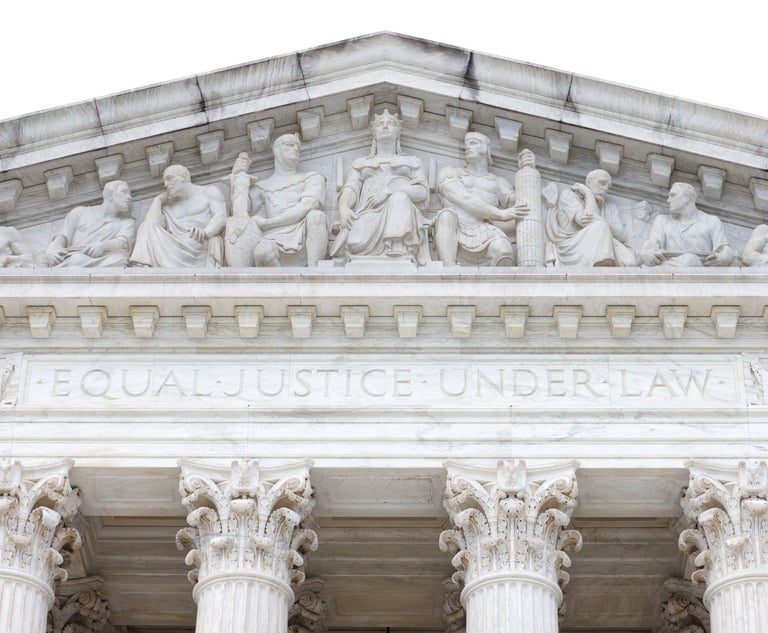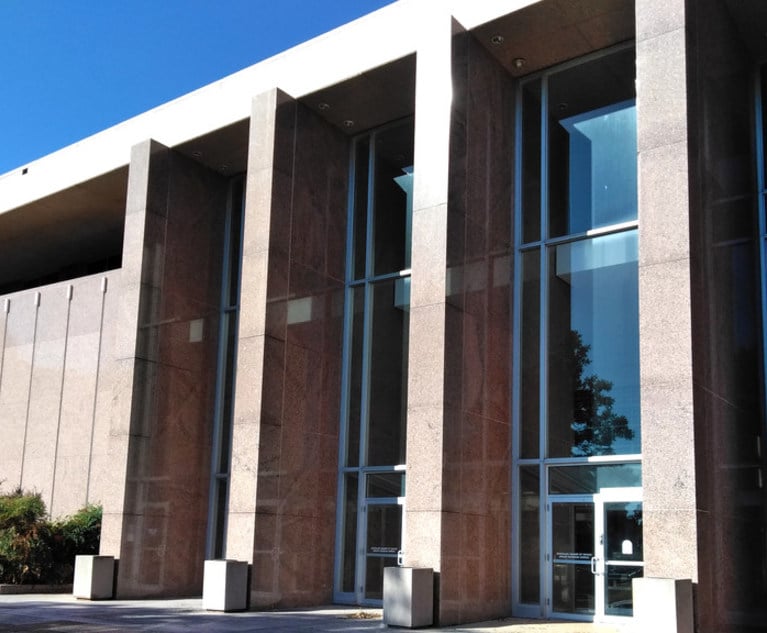Gareth Evans

February 07, 2023 | Legaltech News
Supremes Bury Privilege Case After Oral ArgumentThe Supreme Court dismissed In re Grand Jury on the grounds that certiorari was improvidently granted, rather than taking the opportunity to provide guidance on attorney-client privilege protection for "dual-purpose" communications.
By Gareth Evans, Daniel Zagoren, and Ana Cabassa-Torres, Redgrave LLP
6 minute read

January 10, 2023 | Legaltech News
Texas Supreme Court Rejects Overbroad Discovery of Cell Phone DataThe court's holding that discovery of cell phone data must be limited to information that the requesting party demonstrates is relevant to the case could have broader implications for discovery in other jurisdictions.
By Gareth Evans, Redgrave LLP
5 minute read

October 25, 2022 | Legaltech News
Supreme Court to Resolve Circuit Split Regarding Attorney-Client PrivilegeIn its current term, the Supreme Court is set to decide whether a "dual-purpose" communication is protected by the attorney-client privilege where obtaining or providing legal advice was "one of the significant purposes" of the communication.
By Gareth Evans & Ted Hiser. Redgrave LLP
6 minute read

January 06, 2021 | Legaltech News
A Tale of Two Cases: TAR Trouble Arises from ESI ProtocolValsartan and Livingston stand as a warning of the risks of including provisions in an ESI protocol that serve to relinquish a party's right to determine an appropriate review methodology.
By Gareth Evans, Redgrave
7 minute read

December 15, 2017 | Legaltech News
Unfinished Business: A Wish List for New FRCP AmendmentsThe 2015 amendments had the potential to be transformative. So far, they have succeeded in part. Ambitious as they were, the amendments left unresolved several serious problems.
By Gareth Evans, Gibson, Dunn & Crutcher and Philip Favro, Driven
7 minute read

December 30, 2015 | Legaltech News
Rethinking TAR: New Technologies and Strategies Should Bring the Promise Closer to RealityThe good news is that a new generation of TAR tools and new strategies for using TAR are emerging that may obviate many hurdles.
By Gareth Evans
7 minute read

December 28, 2015 | Legaltech News
Rethinking TAR: New Technologies and Strategies Should Bring the Promise Closer to RealityThe good news is that a new generation of TAR tools and new strategies for using TAR are emerging that may obviate many hurdles.
By Gareth Evans
7 minute read

October 05, 2015 | New York Law Journal
Practical Considerations in Using Predictive CodingGareth Evans and Jennifer Rearden of Gibson, Dunn & Crutcher write: Many have been deterred from using predictive coding because various hurdles can arise. Nevertheless, with some forethought and preparation, and by involving those with the right expertise, many of the hurdles can be overcome, or at least minimized, and parties may more often realize the potential benefits of predictive coding.
By Gareth Evans and Jennifer Rearden
13 minute read

October 02, 2015 | New York Law Journal
Practical Considerations in Using Predictive CodingGareth Evans and Jennifer Rearden of Gibson, Dunn & Crutcher write: Many have been deterred from using predictive coding because various hurdles can arise. Nevertheless, with some forethought and preparation, and by involving those with the right expertise, many of the hurdles can be overcome, or at least minimized, and parties may more often realize the potential benefits of predictive coding.
By Gareth Evans and Jennifer Rearden
13 minute read

March 17, 2015 | Delaware Business Court Insider
Technological Incompetence Doesn't Excuse Discovery FailuresIn imposing strict evidentiary and monetary sanctions for a party's repeated failure to produce requested electronically stored information, the Delaware Court of Chancery recently observed that counsel's "professed technological incompetence is not an excuse for discovery misconduct."
By Gareth Evans
6 minute read
Trending Stories
- 1Call for Nominations: Elite Trial Lawyers 2025
- 2Senate Judiciary Dems Release Report on Supreme Court Ethics
- 3Senate Confirms Last 2 of Biden's California Judicial Nominees
- 4Morrison & Foerster Doles Out Year-End and Special Bonuses, Raises Base Compensation for Associates
- 5Tom Girardi to Surrender to Federal Authorities on Jan. 7
More from ALM
- Scan In Progress: Litigators Leverage AI to Screen Prospective Jurors 1 minute read
- Legal Speak at General Counsel Conference East 2024: Match Group's Katie Dugan & Herrick's Carol Goodman 1 minute read
- Legal Speak at General Counsel Conference East 2024: Eric Wall, Executive VP, Syllo 1 minute read



